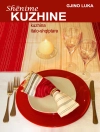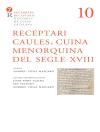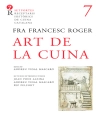In ‘The Feasts of Autolycus: The Diary of a Greedy Woman’, Elizabeth Robins Pennell intricately weaves personal narrative with culinary exploration, reflecting both a literary and societal tapestry of the late 19th and early 20th centuries. Pennell employs a confessional diary style that invites readers into the intimate realms of her gastronomic temptations and philosophical musings on appetite, desire, and the culinary arts. The book serves as a social commentary on the changing roles of women, revealing how food intertwines with identity, domesticity, and pleasure in an increasingly modern world. Elizabeth Robins Pennell, an American author and illustrator who became prominent as a literary figure in England, was influenced by her experiences in the bustling cultural milieu of London, where food and society were inextricably linked. With her background in art and literature, Pennell’s observational prowess and sincerely humorous prose invite readers to consider deeper questions of morality and indulgence, reflecting her artistic sensibilities and her ambivalence toward the era’s societal expectations of women. For readers who appreciate literature that combines the joys of eating with thoughtful reflections on human nature, ‘The Feasts of Autolycus’ offers both entertainment and insight. Pennell’s witty and engaging style resonates well with those who have a penchant for culinary history, memoirs, and social commentary, making this book a delightful treat for the mind as well as the palate.
Про автора
Elizabeth Robins Pennell (1855-1936) was an American writer and critic, often remembered for her contributions to culinary literature and her distinctive narrative voice, blending erudition with a touch of whimsy. Born in Philadelphia, Pennell embarked on a literary career that would encompass a range of subjects from travel to the fine arts. She married Joseph Pennell, an illustrator, with whom she collaborated on several travel books, though she also carved out an individual niche as a writer in her own right. Pennell’s gastronomic work gained particular acclaim with ‘The Feasts of Autolycus: The Diary of a Greedy Woman’ (1896), wherein she artfully combined the personal reflections of a culinary enthusiast with a connoisseur’s insights, making a significant mark on food writing of the period. This diary-style narrative offers a flavorful journey through diverse cultures and cuisines, showcasing her literary finesse and deep appreciation for the sensorial experiences of eating. Pennell’s prose, characterized by its vivid descriptions and a tongue-in-cheek tone, attracted readers who shared her delight in epicurean pleasures. While not as widely recognized today, her literary contributions during the late 19th and early 20th centuries left an indelible impression on the development of gastronomic and travel writing, sectors in which she was a pioneering female voice. Pennell’s legacy is that of a writer who savored life’s luxuries and articulated them with an infectious zeal that continues to resonate with readers and food enthusiasts alike.












